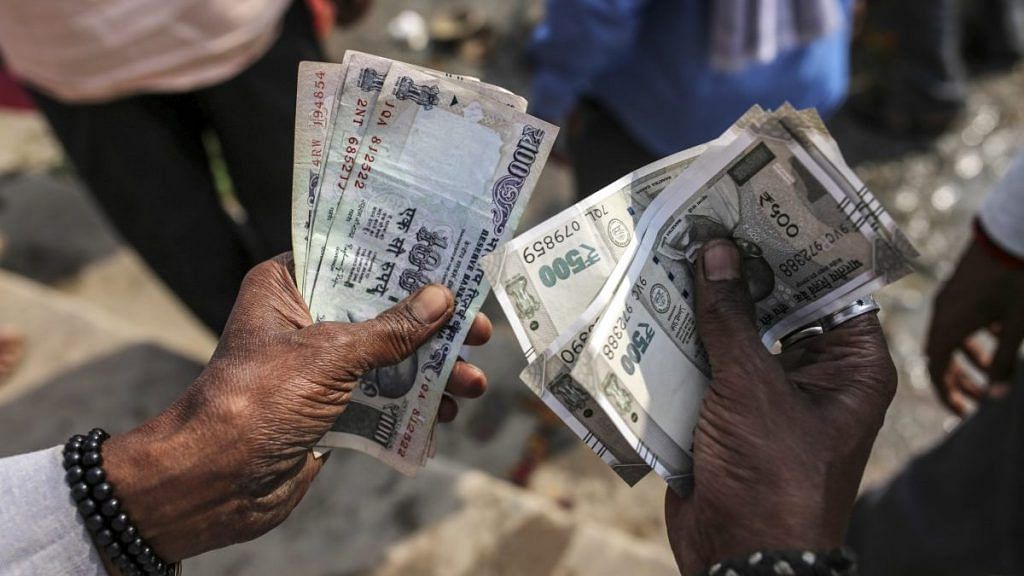New Delhi: The secrecy over the amount of black money held by Indians could be over soon — for at least some Members of Parliament, to begin with.
The Modi government had given three studies on black money to the parliamentary standing committee on finance in 2017 but had “restrained” committee chairperson M. Veerappa Moily from disclosing it to members.
After Biju Janata Dal (BJD) MP Bhartruhari Mahtab raised it during discussion on the Finance Bill in the Lok Sabha last week, Piyush Goyal, then minister of finance, clarified that the reports were available for members but could not be put in the public domain.
The parliamentary committee will meet Thursday to decide if its members — 31 MPs — should have access to government-commissioned reports on the estimated amount of black money.
“We will discuss it on 21 February,” committee chairman Moily told ThePrint Monday evening, but refused to elaborate.
Also read: Two years after demonetisation, purchases without receipts continue to stoke black money
BJP support
What has brightened the prospects of these studies on black money getting public is the willingness of the Bharatiya Janata Party (BJP) parliamentarians to have an “informed debate” on this in the standing committee.
“This black money had got accumulated during the Congress regime. We have nothing to hide. Why should we have any objection to these reports being discussed by the committee?” a parliamentary panel member from the BJP told ThePrint on condition of anonymity.
Once the MPs debate the findings of these reports, they are likely to find place in the committee’s final report, which comes in the public domain after it is tabled in Parliament.
In the past, BJP MPs stalled reports by parliamentary committees — on GDP numbers and demonetisation — at the drafting stage, which might have spared the government blushes.
The estimates committee headed by senior BJP leader Murli Manohar Joshi had, in a draft report last October, recommended a review of the new methodology adopted to estimate the GDP but it could not be adopted due to strong protests by BJP MPs led by Nishikant Dubey.
Earlier, he had led BJP MPs to prevent the adoption of a draft report on demonetisation by the Moily-headed panel, which was critical of the government’s decision in terms of its impact on the economy.
Reports
The government had given the findings of three studies on black money to finance committee chairman Moily in July 2017 but they were not shared with members.
The United Progressive Alliance (UPA) government had commissioned these studies in 2011 by the National Institute of Public Finance and Policy, National Council of Applied Economic Research and National Institute of Finance Management.
One of these reports was submitted to the then UPA government while the other two were submitted to the NDA government barely a few weeks after it came to power in May 2014.
Those in the know of the findings of these studies say that their estimates of black money “varied widely” and it was difficult to make any definite conclusion.
A debate on this is, however, likely to provide grist for the political mill in an election season.
The BJP had made the issue of black money a major poll plank in the last Lok Sabha elections, with Narendra Modi, then a prime ministerial candidate, promising that each of the poor would get Rs 15-20 lakh when the money stashed abroad was brought back to India.
The opposition parties have been taking jibes at Modi for his failure to fulfill this promise.
Also read: From Modi’s tearful entry to Rahul Gandhi’s hug, the highlights of 16th Lok Sabha
This report has been updated to accurately reflect the year when the government gave three studies on black money to the parliamentary standing committee on finance. It was in 2017, not 2016. The error is regretted.
